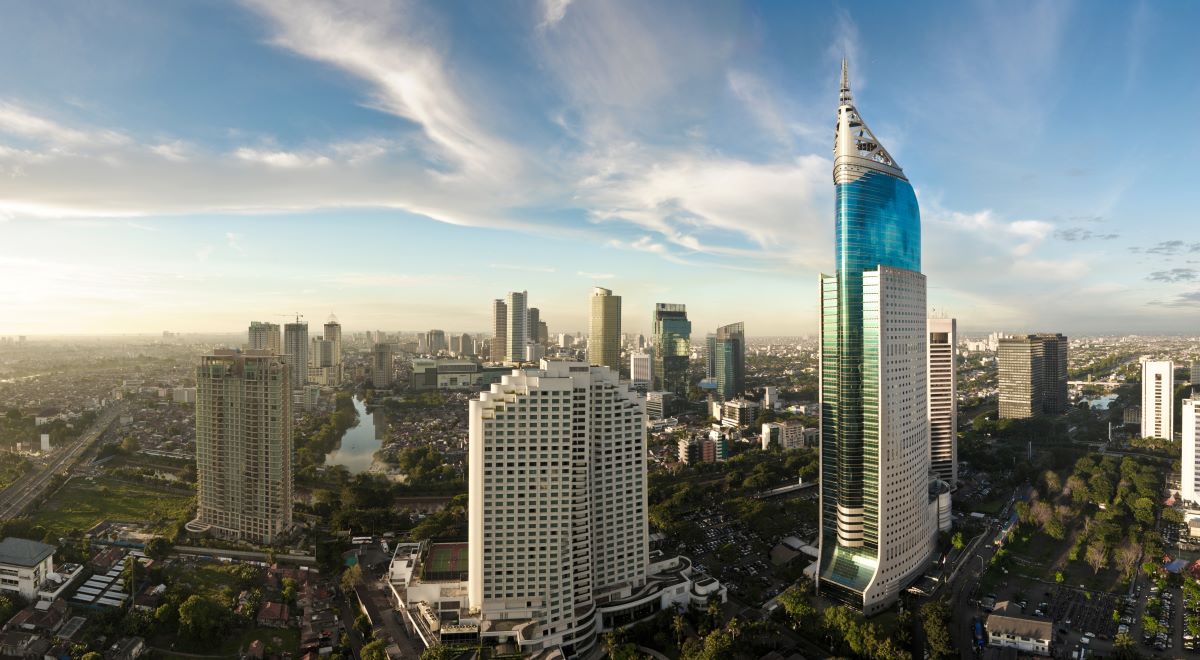Indonesia’s GDP growth slowed to a two-year low in the third quarter of 2023, facing headwinds from declining exports and global economic uncertainties. According to the country’s central statistics agency, Badan Pusat Statistik (BPS), the economy expanded by 4.94% in the July-September quarter, marking the lowest growth rate since 2021.
This figure fell below the 5% median estimate predicted by economists and represented a notable decline from the 5.17% growth recorded in the preceding quarter.
Declining exports weighed on the GDP
Indonesia witnessed weaker economic growth due to a decline in export value for the third quarter. The value of exports contracted by 4.26% in the third quarter, from 2.97% in the preceding three-month period. Weaker demand from China, Indonesia’s largest trading partner, is also one of the primary reasons that led to the decline in the value of exports.
Also, at a press conference, Amalia Adininggar Widyasari, Head of BPS, highlighted that falling global commodity prices have resulted in a decline in the export value of the country’s several export commodities.
Indonesia’s exports consist of various products, including oil and gas, minerals, crude palm oil, electrical appliances, and rubber products. These exports generate significant revenue for the country and are essential for its economic stability.
“Spatially, the Indonesian economy in the third quarter of 2023 in almost all provinces experienced slowing growth (y-on-y), where the group of provinces on the island of Java became the largest contributor to the economy with a contribution of 57.12% and an economic growth rate of 4.83% (y-on-y),” informs BPS.
Tourism, investments, and private consumption were the bright spots
While the exports lagged, there were also some positive indicators within the economic landscape. Tourism and private consumption emerged as driving forces behind Indonesia’s GDP. BPS’s Widyasari said that the number of domestic tourists rose by 13.35% year-on-year during Q3 of FY23, while foreign tourist arrivals surged by 64.87% year-on-year during the same period.
Additionally, there was a notable acceleration in gross fixed capital formation (GFCF) in the latest quarter. It grew at its most rapid rate in the past two years, reaching 5.77%, driven by increased construction, vehicle purchases, and capital goods investment. GFCF represents the investment made by businesses, governments, and individuals in physical assets such as machinery, buildings, and infrastructure.
Meanwhile, private consumption, constituting over half of Indonesia’s GDP, grew by 5.06% in the third quarter of 2023 compared to the same period in 2022. Also, the agriculture sector expanded by 1.46% year-on-year, and manufacturing saw growth of 5.2% year-on-year.
When private consumption is strong, it stimulates demand for various products and services. This, in turn, encourages businesses to produce more and hire more workers, contributing to economic expansion.
“In the third quarter of 2023, economic growth was underpinned by private consumption, including consumption by younger generations, which increased in line with higher consumption in the services sector and persistently upbeat consumer confidence,” said Bank Indonesia (BI) last month, before the latest GDP figures were released.
Indonesia’s GDP forecast revised
Following the GDP data release, the nation’s Finance Minister Sri Mulyani Indrawati announced the government’s plan to expand its tax break for home buyers to boost economic growth until 2024.
She also downwardly revised Indonesia’s official GDP forecast for 2023 to 5.04% from 5.1%. The growth for 2024 is forecasted at 5.24%. Meanwhile, the IMF expects Indonesia’s GDP to expand by 5% in 2023 and 5.1% in 2024.
Also, the World Bank offers certain suggestions about Indonesia’s long-term growth. “For Indonesia to accelerate its growth and achieve its objective of becoming a high-income country by 2045, the Government could prioritise implementation of recent structural reforms such as the financial sector omnibus law, and adopt further market-friendly policies in trade and business regulations that further remove constraints to competition,” says the World Bank.










 Australia
Australia China
China India
India Indonesia
Indonesia Japan
Japan Malaysia
Malaysia Philippines
Philippines Singapore
Singapore South Korea
South Korea Taiwan
Taiwan Thailand
Thailand Vietnam
Vietnam Germany
Germany Hong Kong
Hong Kong USA
USA Switzerland
Switzerland Singapore
Singapore
 United Kingdom
United Kingdom








